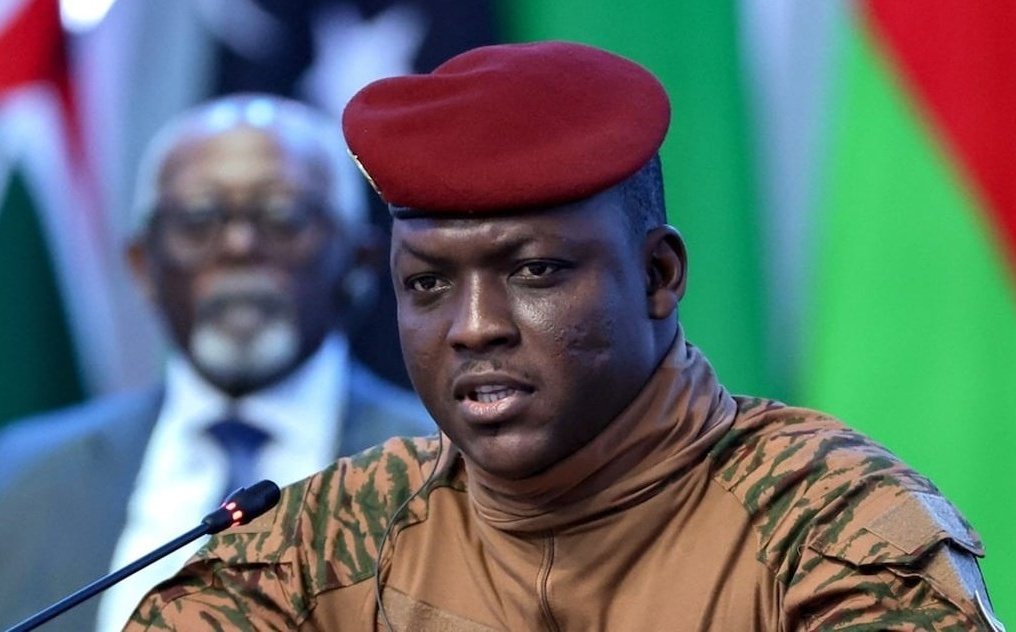
BREAKING: Burkina Faso’s President Ibrahim Traoré Dissolves Electoral Commission, Calls It Tool of Foreign Influence

In a move that is sending shockwaves across West Africa and raising eyebrows within the international diplomatic community, Burkina Faso’s military ruler, Captain Ibrahim Traoré, has officially dissolved the country’s electoral commission.
The decision, announced late Wednesday night, comes with fierce condemnation of the commission as a "waste of national resources" and "an instrument of foreign manipulation."
President Traoré, who seized power in a 2022 military coup, made the announcement during a nationally televised address, declaring that the country must chart a new path that is independent of external influence and rooted in its own sovereignty. “We will no longer allow the destiny of our nation to be dictated by foreign interests masked behind so-called democratic frameworks,” he said, his voice stern and unrelenting. “The electoral commission has failed us and served others.”
The dramatic declaration was followed by immediate military deployment to the headquarters of the Independent National Electoral Commission (CENI) in the capital, Ouagadougou.
According to eyewitness reports, military trucks surrounded the premises, and officials were escorted out as armed personnel sealed the building. Though no violence was reported, the swift and calculated nature of the operation signaled that the decision was anything but symbolic.
Traoré’s move is being interpreted by political analysts as yet another step in the region’s ongoing unraveling of Western-style democratic institutions.
With coups in Mali, Niger, and now the firm grip of military leadership in Burkina Faso, the once-cherished vision of democratic consolidation in West Africa is beginning to crack under the weight of military populism and anti-Western sentiment.
Since assuming office, Traoré has made no secret of his disdain for what he describes as “neo-colonial influences” masked in civil society, elections, and media funded by international partners.
His government has moved aggressively to expel French troops, suspend various foreign-backed NGOs, and now, dismantle one of the last symbols of civilian electoral governance.
The reaction from the international community has been swift. The United Nations and the African Union have both expressed “deep concern” over the development.
The Economic Community of West African States (ECOWAS), already grappling with the fallout from similar upheavals in Mali and Niger, issued a cautious statement urging dialogue and a return to constitutional order. Yet, given the recent withdrawal of Burkina Faso from ECOWAS alongside its military-led allies, those words may fall on deaf ears.
Back home, reactions are deeply divided. While some urban youth and nationalist groups have taken to the streets in celebration, hailing Traoré as “a true son of Africa” standing up against foreign domination, others—particularly within the civil society and academic sectors—fear that the country is sliding into authoritarianism under the guise of sovereignty.
The implications are profound. Without an electoral commission, the promised transition to civilian rule by 2024 now looks unlikely. Critics argue that dissolving CENI is a veiled attempt to consolidate power indefinitely, especially as public institutions grow increasingly militarized.
Meanwhile, supporters insist it is a bold correction to a system that was never designed to serve the Burkinabè people in the first place.
As the world watches with bated breath, Burkina Faso seems to have chosen a path less traveled—one fraught with uncertainty, tension, and the potential for further isolation.
For Traoré, this may be the defining moment of his rule: one that either reshapes the nation’s political destiny or sets the stage for a prolonged and perilous confrontation with both internal dissent and global disapproval.
What remains clear, however, is that democracy, at least in its imported form, has been put on notice in Burkina Faso.
And in Traoré’s new Burkina Faso, the ballot may just have lost its meaning—replaced instead by the booming echo of military boots.


